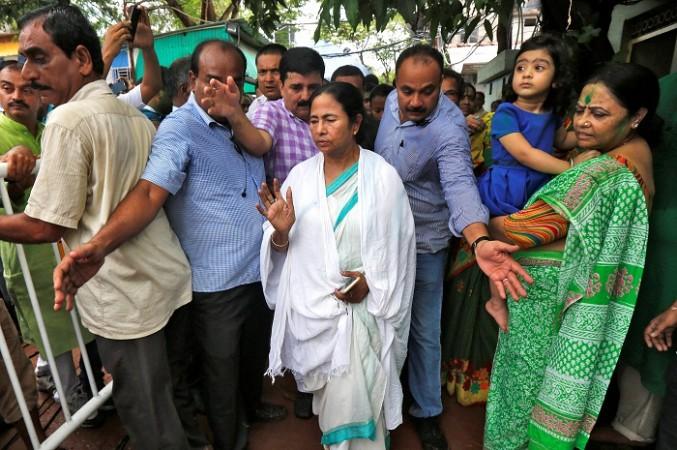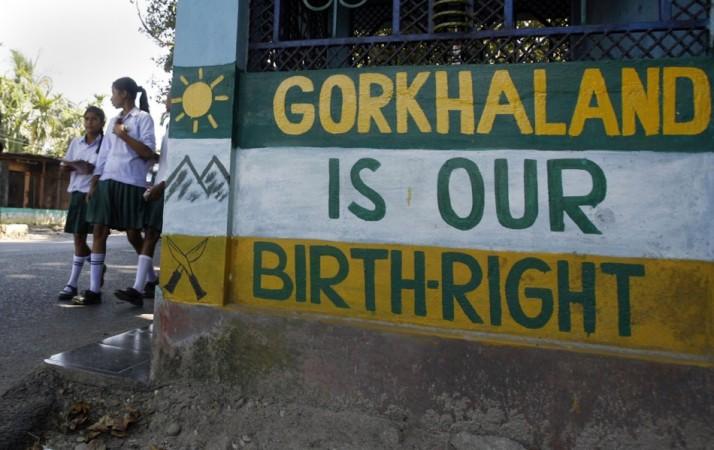The fire in Darjeeling in North Bengal refuses to die as neither of the parties – the Gorkha Janmukti Morcha (GJM) led by Bimal Gurung nor the ruling Trinamool Congress (TMC) of Chief Minister Mamata Banerjee relenting. On Thursday, June 15, the situation turned worse with the police raiding the office of Gurung in Patlabas and recovering a huge cache of arms besides money and mobile phones. A GJM leader was arrested while a few supporters were detained, infuriating the party to go for even bigger protest. The GJM is now trying to spread the fire in the Terai and Dooars regions to challenge the state government all the more. Reports also said that the GJM called an all-party meeting on Tuesday, June 13, to unanimously fight for Gorkhaland.
However, it will not be easy for the GJM to muster much support either from the political quarters nor to spread the movement in the Terai and Dooars areas. First of all, the BJP-led government at the Centre might have backed the GJM in the past for political reasons, but it is never going to accede to the latter's request for a separate Gorkhaland because of security reasons.
The epicentre of the Gorkhaland tussle is strategically sensitive for there are three international borders close to the region, including that with China and allowing the fire of protests to rage there for long creates enough concern for the home ministry.
In Terai and Dooars, the tribals will not allow the GJM to make any inroads and the Adivasi Vikas Parishad led by Birsa Tirkey has already made that clear. The save Bengali groups of the region have also become active, creating more obstacles for the GJM. Gurung's supporters have also found it tough to stage protests in their own turf because of the iron fist of the Mamata administration. Senior police officers have been posted in the Hills, putting more pressure on the protesters.

"It is a sentimental issue but yet we don't know whether Gurung will be as popular tomorrow as he is today. So, the situation is quite tricky," a member of the Gorkha Rashtriya Congress, a political party of the region, told International Business Times, India, on the condition of anonymity. The member also said that the state government has adopted the right tactic in dealing with the protest though also adding that many in the ruling TMC also harbour the same sentimental feeling about a separate state.
Sarda Rai Subba of the TMC who had contested from Darjeeling in the 2016 state Assembly elections but lost to the GJM's Amit Singh Rai, told IB Times that only Patlabas area was seeing protests. "All other places are peaceful," she said. She also added that the chief minister was handling the challenge perfectly, better than the previous Left Front government.
Subba had her reasons to feel convinced about. Banerjee had initiated talks and also reached an agreement with the GJM to set up the Gorkhaland Territorial Administration (GTA) to replace the Darjeeling Gorkha Hill Council (DGHC) of the Left Front days. But gradually, charges of corruption came up against the GJM which dominates the body and even the BJP, Gurung's electoral partner, was left disappointed. As the GJM refused to soften its stand on Gorkhaland, Banerjee played a two-pronged strategy.
Mamata's two-pronged strategy to corner the GJM
On the one hand, she cornered the GJM by empowering other tribal and ethnic bodies of the region and also backed GJM's dissidents and on the other, she attacked Gurung's leadership over the question of corruption and muscle-flexing politics. By personally monitoring the situation from the Hills during the latest violence and ensuring that the tourists stranded in the region were brought back to Kolkata safely, Banerjee also sent across the message that she is an administrator who cares for her state and its people. Gurung's threats and claims that he is the chief minister of the Hills left himself exposed, on the other hand.

Banerjee's days in office have seen a rise of a Bengali sub-nationalism in Bengal and the GJM has faced its ire as it refused to give up on its own sub-nationalism and work on the development of the Hills instead. It is logical that only one force will prevail in this clash between two sub-nationalisms and since the responsibility of security rests with the government, there is very little the GJM will be able to do eventually.















